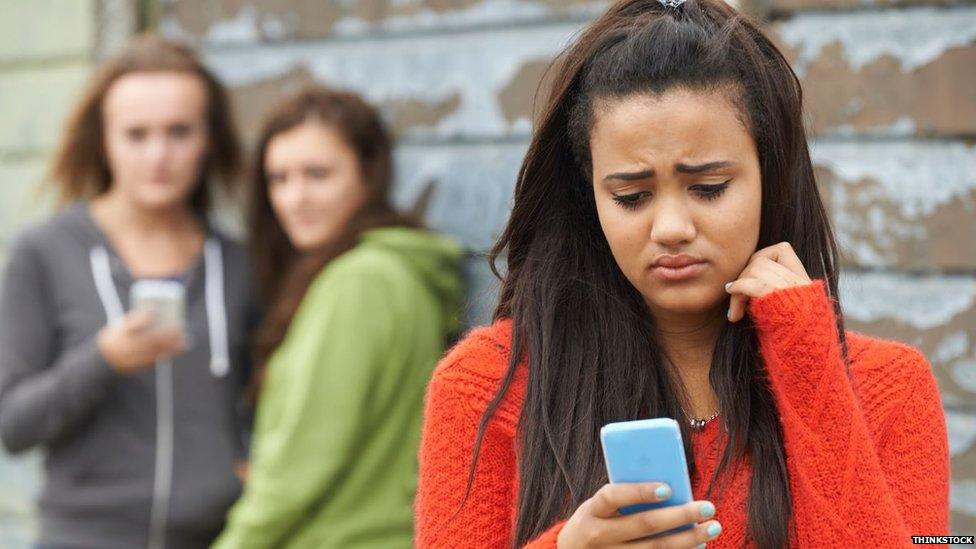Cyberbullying 'worse than face-to-face' abuse, suggests global research
- Published

One-in-five young people has been cyberbullied, according to a research across 11 countries.
A fifth of them say they felt suicidal as a result.
The survey also found that more than half of the 5,000 teenagers who took part thought being targeted online was worse than face-to-face bullying.
Vodafone and YouGov carried out the poll in countries including the UK, Spain, New Zealand and Ireland.
What it found among the victims
Forty-one per cent said online abuse left them feeling depressed or helpless.
Fourteen-year-old Izzy Dix took her own life after being cyberbullied
A quarter had closed down their social media accounts, with almost 40% saying they couldn't tell their parents, because of feeling scared or worry that they might get involved.
Around 40% said they would find it hard to support a friend being been bullied, but seven out of 10 would "be likely to use an emoji to express compassion or support".
Newsbeat recently brought you a series of reports looking at teenage suicide after the death of 14-year-old Izzy Dix.
You got in touch with us through Facebook, Twitter and text message to tell us how and why Izzy's story had affected you.
"I experienced suicidal thoughts as a young person and it was a massive relief to finally speak up," wrote Rachel.
"Online bullying has become so much more embedded," said Charlotte.
If this is sounding familiar to you you can get more on these “óĻó“«Ć½ Advice pages.
The Department for Education is spending Ā£7m on tackling cyber bullying and a spokesman said: "We have strengthened teachers' powers to tackle bullying by giving them the freedom to search for and delete inappropriate images from phones and other electronic devices.
"We have also made clear that teachers can discipline and investigate cases of bullying outside school."
Follow on Twitter, on Instagram, on YouTube and you can now follow “óĻó“«Ć½_Newsbeat on Snapchat